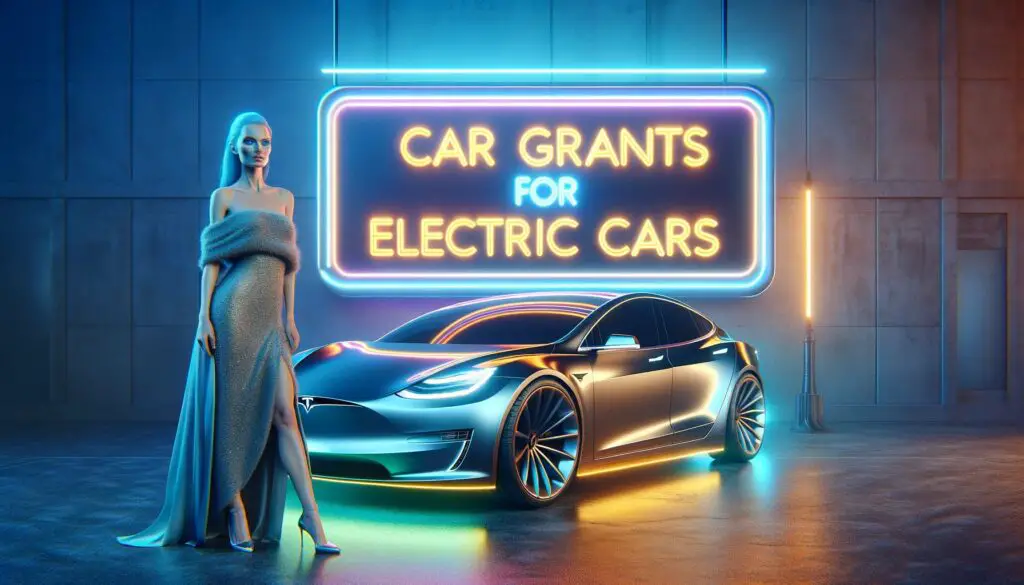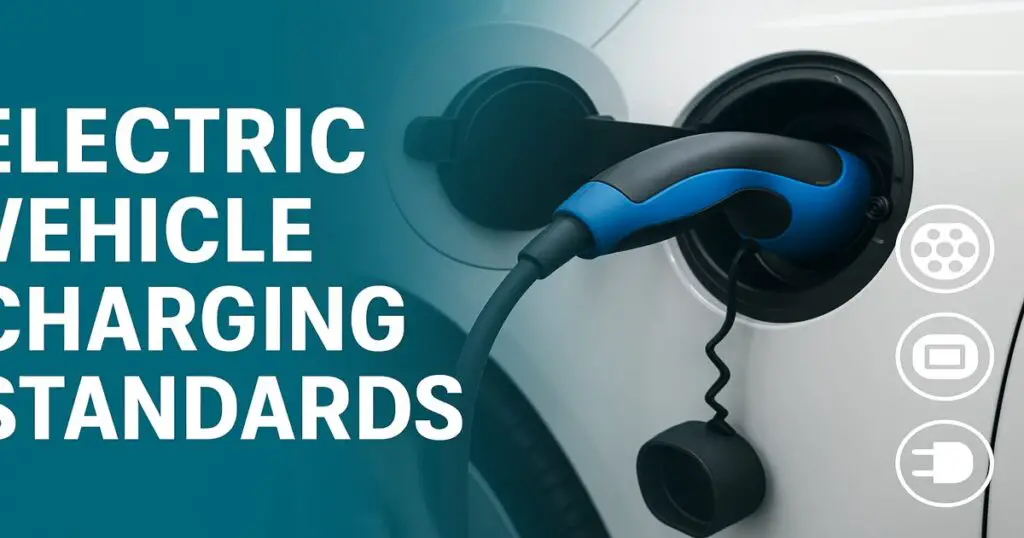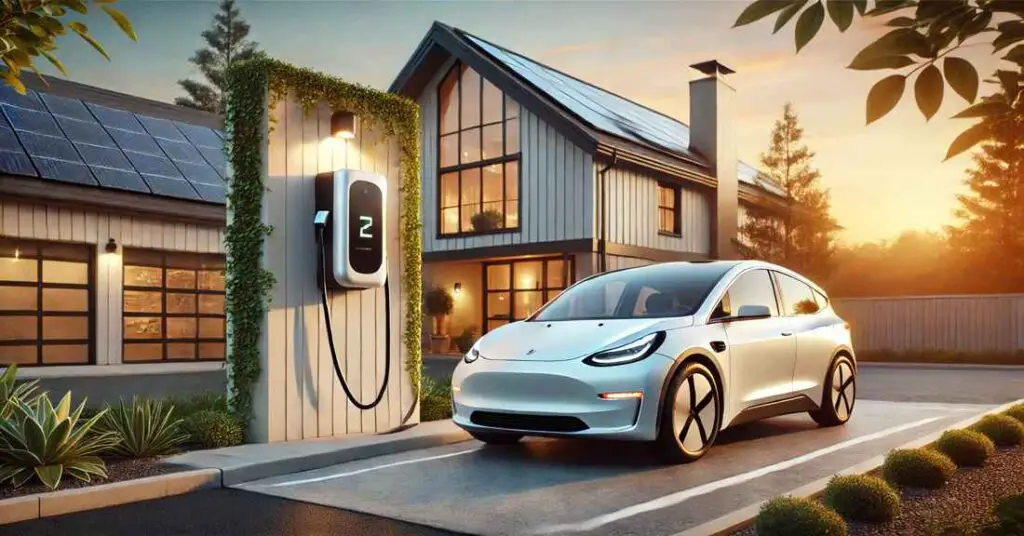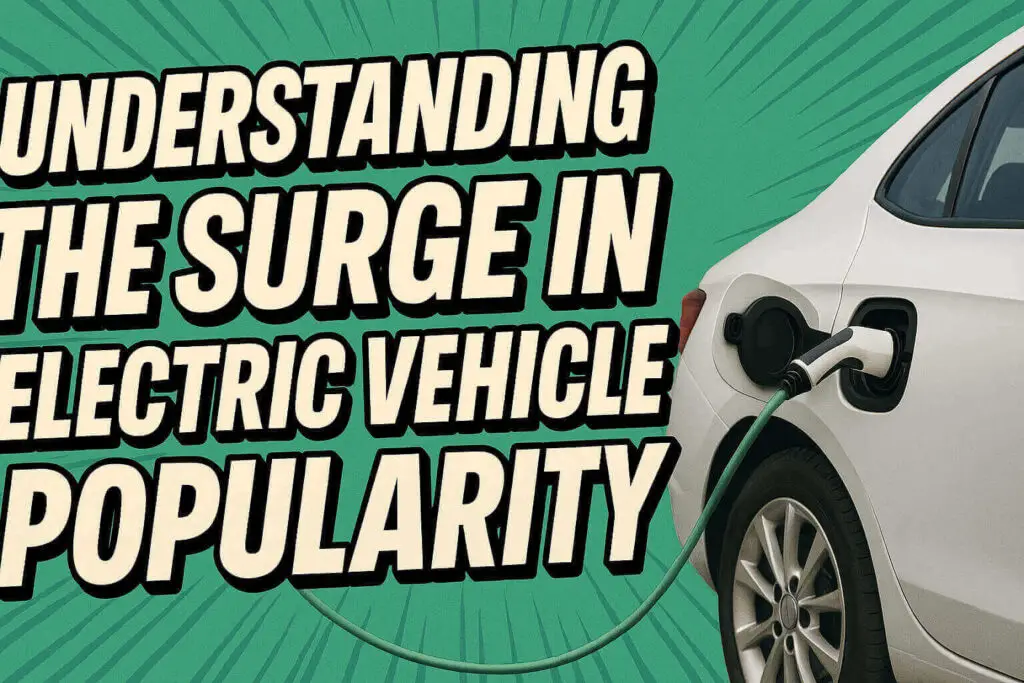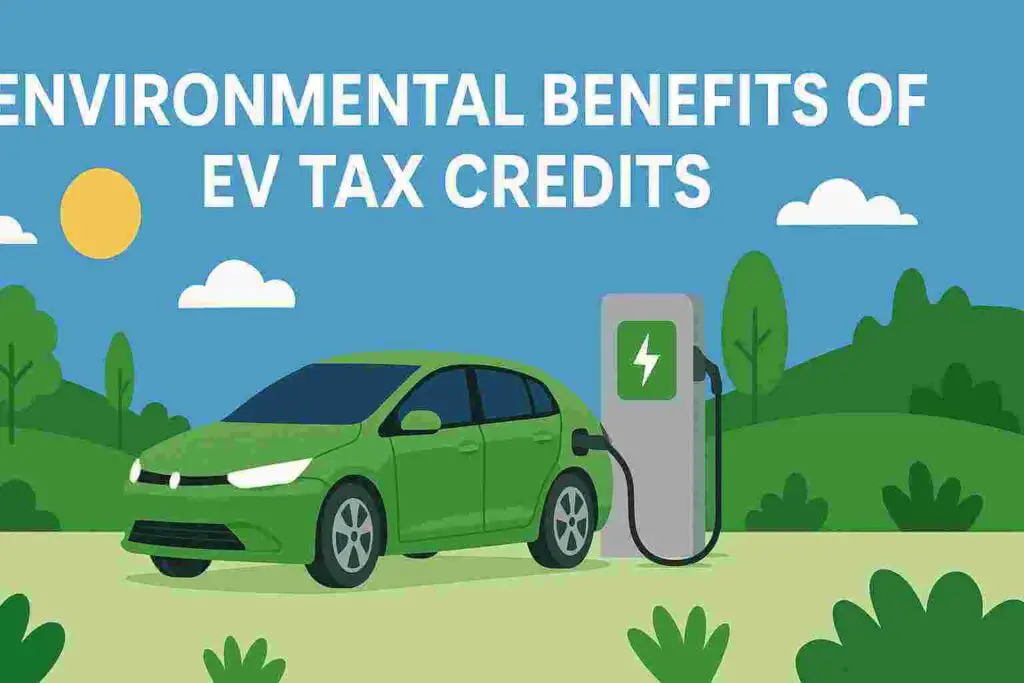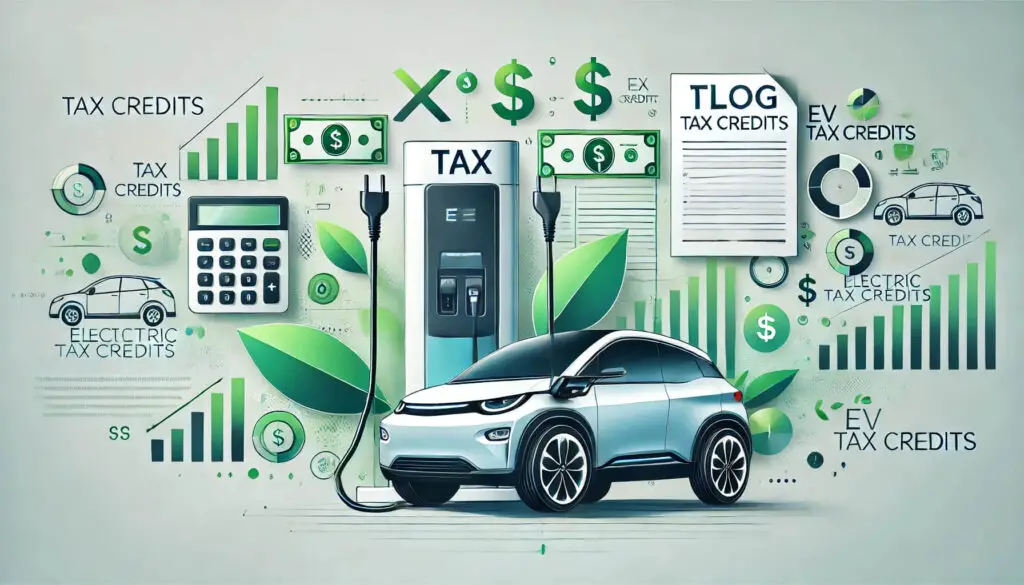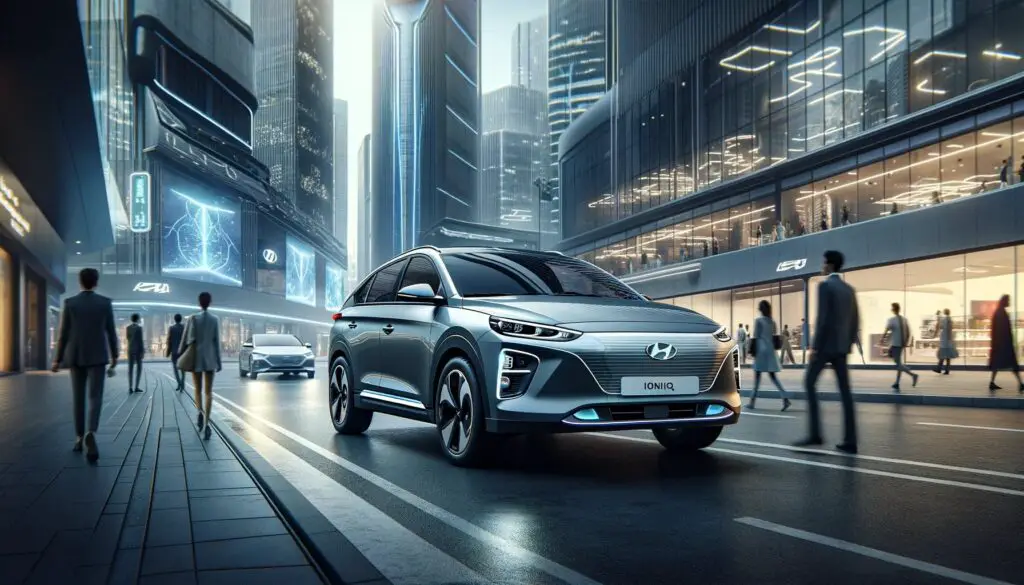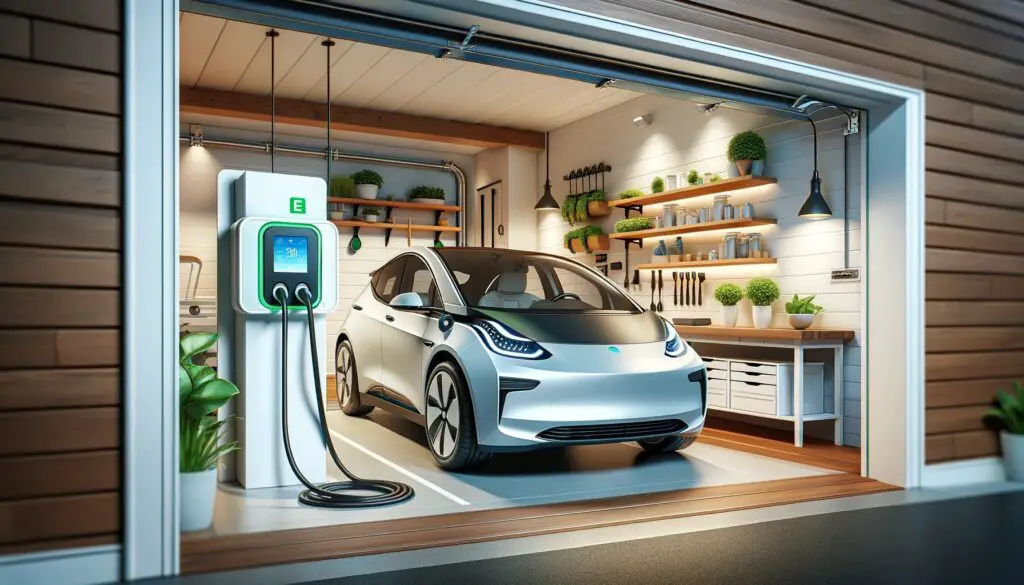In the ongoing battle against climate change, the adoption of electric vehicles (EVs) plays a pivotal role. However, the financial hurdles associated with purchasing EVs can deter many potential buyers. This comprehensive guide aims to shed light on a solution: car grants for electric cars.
The Basics of Electric Car Grants
Electric car grants are financial incentives designed to encourage the adoption of electric vehicles (EVs) by individuals. These grants play a pivotal role in advancing the transition towards sustainable transportation. Here’s a detailed exploration of the key aspects:
1. Purpose and Importance
- Promoting EV Adoption: The primary objective of electric car grants is to incentivize consumers to choose EVs over traditional combustion engine vehicles. By offering financial benefits, governments and organizations aim to accelerate the uptake of cleaner transportation options.
- Addressing Environmental Concerns: Electric cars are recognized for their potential to reduce greenhouse gas emissions and mitigate air pollution. Grants serve as a mechanism to incentivize the use of EVs, thereby contributing to environmental conservation efforts and combating climate change.
2. Types of Grants
Electric car grants are available in various forms, each serving a specific purpose and target audience:
- Federal Grants: Offered by national governments, federal grants provide financial incentives such as tax credits or rebates to individuals purchasing or leasing electric vehicles. These grants are typically part of broader initiatives aimed at promoting sustainable transportation at a national level.
- State Grants: Many states offer their own incentives to supplement federal programs. State grants may include additional rebates, tax credits, or other financial incentives tailored to local needs and priorities.
- Local Grants: Municipalities and local governments also participate in promoting EV adoption by offering grants and incentives. These may include exemptions from vehicle registration fees, access to carpool lanes, or discounts on charging infrastructure installations.
- Utility Company Programs: Utility companies often collaborate with governments to encourage the use of electric vehicles. Utility programs may involve offering discounted electricity rates for EV charging or providing rebates for home charging station installations.
3. Eligibility Criteria
To qualify for electric car grants, individuals must meet specific eligibility criteria, which may vary depending on the grant program:
- Vehicle Type: Grants typically apply to new electric vehicles meeting certain specifications, such as battery size or range.
- Ownership or Lease Status: Some grants may require applicants to either purchase or lease an electric vehicle for a specified period.
- Income Level: Certain grants may be income-restricted, targeting low to moderate-income individuals to make EVs more accessible.
4. Application Process
Applying for electric car grants involves following a structured process, which may differ based on the granting authority:
- Documentation: Applicants are typically required to submit relevant documents, such as proof of vehicle purchase or lease agreement, along with their application.
- Application Forms: Grant applications often require completion of specific forms provided by the granting authority. These forms may request information regarding the applicant’s personal details, vehicle specifications, and income status.
- Submission Method: Depending on the grant program, applications may be submitted online through a designated portal or via mail to the relevant authority.
5. Benefits of Electric Car Grants
Electric car grants offer numerous benefits to both individuals and society as a whole:
- Financial Savings: Grants can significantly reduce the upfront cost of purchasing or leasing an electric vehicle, making them more affordable for consumers.
- Environmental Impact: By incentivizing the adoption of electric vehicles, grants contribute to reducing greenhouse gas emissions and improving air quality.
- Technological Advancement: Increased demand for EVs driven by grants encourages innovation and investment in electric vehicle technology, leading to further improvements in performance and affordability.
Federal Car Grants for Electric Cars
The federal government provides tax credits as a key incentive to encourage the adoption of electric cars. Here’s a detailed overview of how federal car grants for electric cars work:
1. Tax Credits Overview
- Financial Incentives: Federal tax credits serve as financial incentives for individuals to invest in electric vehicles. These credits reduce the amount of federal income tax owed by the taxpayer, effectively lowering the overall cost of purchasing an electric car.
- Promoting EV Adoption: By offering tax credits, the federal government aims to stimulate demand for electric vehicles and accelerate the transition away from traditional combustion engine vehicles. This supports broader environmental and energy policy objectives, including reducing greenhouse gas emissions and enhancing energy security.
2. Eligibility Requirements
To qualify for federal car grants for electric cars, individuals must meet specific eligibility criteria:
- Vehicle Eligibility: Tax credits typically apply to new, qualifying electric vehicles purchased or leased for personal use. Eligible vehicles must meet certain specifications, such as battery capacity and charging capability, as outlined by the Internal Revenue Service (IRS).
- Ownership or Lease Status: Applicants must be the owner or lessee of the electric vehicle to claim the tax credit. The credit cannot be transferred to another individual unless the vehicle is sold or transferred within the family.
- Income Criteria: Some federal tax credits may be subject to income limitations. Eligibility for certain credits may phase out for taxpayers with higher incomes, ensuring that incentives primarily benefit lower to moderate-income individuals.
3. Application Process
Applying for federal car grants for electric cars involves several steps:
- Completing Forms: Applicants must complete the necessary forms provided by the IRS to claim the tax credit. These forms typically include Form 8936, Qualified Plug-in Electric Drive Motor Vehicle Credit, and Form 1040, U.S. Individual Income Tax Return.
- Providing Documentation: Along with the forms, applicants may need to submit supporting documentation, such as a copy of the vehicle’s purchase or lease agreement and any relevant sales documents. This documentation verifies the eligibility of the electric vehicle and the taxpayer’s ownership or lease status.
- Filing Taxes: The tax credit is claimed when filing annual federal income tax returns. Taxpayers should accurately report the amount of the credit for which they qualify based on their electric vehicle purchase or lease.
4. Impact and Benefits
Federal car grants for electric cars offer several benefits:
- Financial Savings: Tax credits reduce the overall cost of purchasing or leasing an electric vehicle, making them more affordable for consumers. This helps offset the higher upfront cost typically associated with electric cars compared to conventional vehicles.
- Environmental Impact: By encouraging the adoption of electric vehicles, tax credits contribute to reducing greenhouse gas emissions and improving air quality. This supports broader efforts to combat climate change and promote sustainability.
- Market Growth: Increased demand for electric vehicles driven by tax incentives stimulates innovation and investment in electric vehicle technology. This leads to advancements in battery technology, charging infrastructure, and vehicle efficiency, driving further market growth and adoption.
State-Level Car Grants and Incentives
States throughout the USA offer an array of incentives aimed at promoting the adoption of electric vehicles (EVs). These state-level car grants and incentives play a crucial role in driving EV adoption and supporting sustainable transportation initiatives. Here’s an in-depth look at how state-level grants and incentives work:
1. Diversity of Incentives
- Varied Programs: States implement a wide range of programs to encourage EV adoption, including rebates, tax credits, and other financial incentives. Each state tailors its incentives to suit local needs, priorities, and budgetary considerations.
- Examples: States such as California and Virginia have established notable incentive programs:
- California Rebates: The California Clean Vehicle Rebate Project (CVRP) offers rebates for qualifying EV purchases or leases. Rebate amounts vary based on factors such as vehicle type, battery capacity, and applicant income.
- Virginia Tax Credits: Virginia provides tax credits to residents who purchase or lease qualifying electric vehicles. The credit amount depends on factors such as vehicle cost, battery capacity, and state budget allocations.
2. Eligibility Criteria
Navigating state-specific grants and incentives requires understanding the eligibility criteria established by each program:
- Vehicle Eligibility: Incentives typically apply to new, qualifying electric vehicles meeting specific criteria, such as battery size, range, and emissions standards.
- Residency Requirements: Some programs may require applicants to be residents of the state offering the incentive, ensuring that the benefits primarily support local EV adoption efforts.
- Application Process: Applicants must follow designated application procedures, which may involve submitting documentation, such as proof of vehicle purchase or lease agreement, and completing application forms provided by the relevant state authority.
3. Research and Application Process
Researching and applying for state-specific grants and incentives involves several steps:
- Program Evaluation: Prospective EV buyers should research available incentives in their state, including eligibility requirements, incentive amounts, and application deadlines. State government websites and dedicated EV incentive programs provide valuable information for applicants.
- Documentation Preparation: Applicants must gather necessary documentation, such as vehicle purchase or lease agreements, vehicle registration information, and proof of residency, to support their incentive applications.
- Application Submission: Once familiar with the requirements, applicants can submit their incentive applications through designated channels, such as online portals or mail-in forms. Following application guidelines and providing accurate information is essential to ensure timely processing.
4. Impact and Benefits
State-level car grants and incentives offer several benefits:
- Increased EV Adoption: Incentives stimulate demand for electric vehicles, leading to higher adoption rates and reduced dependence on fossil fuels.
- Environmental Impact: By encouraging the use of electric vehicles, incentives contribute to reducing greenhouse gas emissions, improving air quality, and mitigating climate change impacts.
- Economic Development: Incentives support the growth of the electric vehicle market, spurring investment in EV manufacturing, charging infrastructure, and related industries. This creates jobs and stimulates economic development in local communities.
In summary, state-level car grants and incentives play a vital role in advancing EV adoption and supporting sustainable transportation initiatives. By providing financial incentives and reducing barriers to EV ownership, states empower consumers to make environmentally friendly transportation choices while fostering economic growth and innovation in the electric vehicle sector.
Utility Company Programs
Utility companies contribute to the promotion of electric vehicle (EV) adoption by offering rebates and incentives aimed at supporting the development of EV charging infrastructure and encouraging sustainable energy usage. Here’s a detailed overview of utility company programs:
1. Rebates and Incentives
- Financial Support: Utility company programs provide financial incentives, such as rebates or discounts, to offset the costs associated with installing EV charging infrastructure. These incentives help make EV charging more accessible and affordable for residential, commercial, and public locations.
- Infrastructure Development: By offering incentives for EV charging infrastructure, utility companies contribute to the expansion of charging networks, which is essential for supporting the growing population of electric vehicle owners.
2. Promotion of Sustainable Energy Usage
- Environmental Benefits: EVs offer environmental benefits by reducing greenhouse gas emissions and dependence on fossil fuels. Utility company programs promote the adoption of EVs as part of broader efforts to encourage sustainable energy usage and combat climate change.
- Integration with Renewable Energy: Some utility programs incentivize the use of renewable energy sources, such as solar or wind power, for charging EVs. This integration of EV charging with renewable energy contributes to reducing carbon emissions and promoting cleaner transportation options.
3. Qualifying Criteria
- Charging Equipment Requirements: Qualifying for utility company programs often involves installing specific EV charging equipment that meets certain standards and specifications. These requirements ensure the safety, reliability, and compatibility of the charging infrastructure with the utility grid.
- Residential and Commercial Eligibility: Utility programs may offer incentives for both residential and commercial EV charging installations. Eligibility criteria may vary based on factors such as location, charging capacity, and intended use of the charging equipment.
4. Application Process
- Program Enrollment: Interested individuals or businesses can typically enroll in utility company programs through designated channels, such as online portals or customer service representatives. Enrollment may require providing information about the proposed EV charging installation, including location, equipment specifications, and anticipated usage.
- Documentation and Verification: Applicants may need to submit documentation, such as proof of purchase or installation, to verify eligibility for incentives. Utility companies may conduct site visits or inspections to ensure compliance with program requirements before issuing rebates or incentives.
5. Benefits
- Cost Savings: Rebates and incentives offered by utility companies reduce the upfront costs of installing EV charging infrastructure, making it more financially feasible for individuals and businesses to support EV adoption.
- Expansion of Charging Infrastructure: Utility programs contribute to the expansion and accessibility of EV charging infrastructure, supporting the growth of the electric vehicle market and facilitating longer-distance travel for EV owners.
- Environmental Impact: By promoting the use of EVs and renewable energy sources for charging, utility company programs help reduce carbon emissions and promote cleaner air quality, benefiting both the environment and public health.
Additional Financial Incentives
In the realm of electric vehicle (EV) adoption, various entities beyond government agencies offer financial incentives to encourage EV purchases. These additional incentives, provided by manufacturers, dealers, and non-profit organizations, complement government grants and contribute to the overall affordability and attractiveness of electric vehicles. Here’s a closer look at these supplementary financial incentives:
1. Manufacturer and Dealer Rebates
- Financial Support: Manufacturers and dealers may offer rebates and incentives directly to consumers purchasing or leasing new electric vehicles. These incentives can take the form of cash rebates, discounted pricing, or special financing options, reducing the upfront cost of EV ownership.
- Promotional Offers: Manufacturers and dealers often introduce promotional offers and incentives to stimulate demand for specific EV models or clear existing inventory. These limited-time offers may include bonus cash incentives, loyalty rewards, or lease specials, providing additional savings for prospective EV buyers.
2. Non-profit Organization Initiatives
- Promoting EV Adoption: Non-profit organizations dedicated to environmental conservation and sustainable transportation also play a role in promoting EV adoption. These organizations may offer educational resources, advocacy campaigns, and outreach programs to raise awareness about the benefits of EVs and encourage their adoption.
- Financial Assistance: Some non-profit organizations provide financial assistance or grants to support EV purchases, particularly for low to moderate-income individuals or underserved communities. These initiatives aim to make EVs more accessible and equitable while advancing environmental and social justice goals.
3. Combined Benefits
- Maximizing Savings: Combining manufacturer and dealer incentives with government grants allows EV buyers to maximize their financial benefits. By leveraging multiple incentives, buyers can significantly reduce the overall cost of purchasing or leasing an electric vehicle, making it a more attractive and affordable option.
- Comprehensive Support: The availability of a diverse range of incentives from various sources provides comprehensive support for EV adoption. This multi-faceted approach addresses different aspects of affordability, accessibility, and awareness, empowering consumers to make informed choices about transitioning to electric vehicles.
4. Advantages for EV Buyers
- Increased Affordability: Manufacturer rebates, dealer incentives, and non-profit grants lower the financial barriers to EV ownership, making electric vehicles more financially accessible for a broader range of consumers.
- Enhanced Value Proposition: By combining multiple incentives, EV buyers can enjoy greater savings and benefits, improving the overall value proposition of electric vehicles compared to traditional gasoline-powered cars.
- Supporting Sustainability: Beyond financial incentives, purchasing an electric vehicle contributes to reducing greenhouse gas emissions, improving air quality, and promoting energy independence, aligning with broader environmental and societal goals.
Eligibility Criteria for Electric Car Grants
Application Process for Electric Car Grants
Maximizing Your Benefits
Challenges and Considerations
Despite the benefits of car grants for electric cars, challenges may arise during the application process. Navigating the complexities of grant applications requires patience and attention to detail. Anticipating potential changes in grant programs and staying informed about the future of electric car grants is essential.
Conclusion
In conclusion, electric car grants play a crucial role in making EVs accessible to a broader range of consumers. By taking advantage of available grants and incentives, individuals can contribute to a more sustainable future of transportation. Embracing electric vehicles is not only beneficial for the environment but also for the financial well-being of consumers.
Resources
Here are some useful resources for further research on electric car grants, contact information for federal, state, and local programs, as well as online calculators and tools for estimating potential savings and benefits:
Websites and Resources for Electric Car Grants
- Plug In America: Plug In America offers comprehensive information on electric vehicles, including available incentives and grants at the federal, state, and local levels.
- Department of Energy (DOE): The DOE’s Alternative Fuels Data Center provides a searchable database of incentives and regulations related to alternative fuels and vehicles, including electric car grants.
- Clean Cities Coalition: Local Clean Cities Coalitions often provide resources and assistance for individuals interested in electric vehicles, including information on available grants and incentives in specific regions.
Contact Information for Programs
- Federal Programs: Contact the Internal Revenue Service (IRS) for information on federal tax credits for electric vehicles.
- State Programs: Visit your state’s official government website or contact the relevant department, such as the Department of Transportation or Energy, for information on state-level electric car grants and incentives.
- Local Programs: Reach out to your city or county government offices for details on local electric car grants and incentives. Contact information can typically be found on the official government website or by calling the local government office.
Online Calculators and Tools
- Electric Vehicle Savings Calculator: Use tools like the Electric Vehicle Savings Calculator provided by the U.S. Department of Energy to estimate potential savings from owning an electric vehicle, including fuel and maintenance costs compared to conventional vehicles.
- Incentive Estimators: Some websites, such as Electric For All, offer incentive estimators that help calculate potential savings from available grants, tax credits, and other incentives for electric vehicle purchases.
- Total Cost of Ownership Calculators: Various websites and automotive organizations offer Total Cost of Ownership (TCO) calculators that factor in incentives, fuel costs, maintenance expenses, and other factors to estimate the overall cost of owning an electric vehicle compared to a conventional gasoline vehicle.
These resources can assist individuals in researching electric car grants, accessing contact information for relevant programs, and using online calculators and tools to estimate potential savings and benefits associated with electric vehicle ownership
READ MORE :
How To Apply for Free Cars for College Students
If you’re interested in learning more about how college students can apply for free cars, visit resources such as scholarship websites, community organizations, or government assistance programs. These sources may provide information on eligibility criteria, application processes, and available opportunities for receiving free or discounted vehicles for educational purposes.
How to Donate Your Vehicle (Habitat for Humanity Car Donation Program)
To donate your vehicle to Habitat for Humanity or similar charitable organizations, you can visit their official websites or contact their local chapters to learn about their car donation programs. These programs typically accept donations of cars, trucks, boats, RVs, and other vehicles to support their mission of building affordable housing for those in need. They can provide guidance on how to initiate the donation process and arrange for the pickup or drop-off of your vehicle.
How To Get a Free Car From the Government
If you’re interested in obtaining a free car from the government, explore resources such as government assistance programs, non-profit organizations, and social services agencies that may offer vehicle assistance programs for eligible individuals. These programs often target low-income families, veterans, individuals with disabilities, or those facing transportation barriers. Research available programs in your area and contact the relevant agencies to inquire about eligibility requirements and application procedures.

